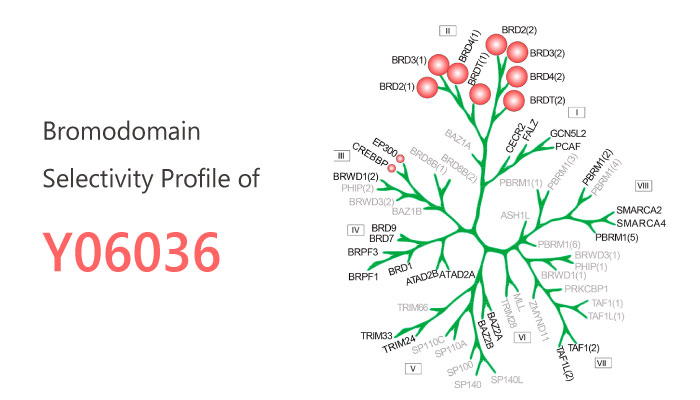Prostate cancer is the most common malignancy and the fifth leading cause of death from malignancy in men. Since androgen receptor (AR) signaling has a pivotal role in prostate cancer, androgen deprivation therapy (ADT) with surgical or chemical castration is the standard treatment with most patients going to remission. However, the disease progresses to an incurable stage known as castration-resistant prostate cancer (CRPC). Castration resistant prostate cancer is now the key issue in prostate cancer management and research. The bromodomain and extra-terminal (BET) family proteins have gained increasing interest as drug targets for treatment of castration-resistant prostate cancer.
The BET family proteins, consisting of BRD2, BRD3, BRD4, and testis-specific BRDT members, are epigenetic “readers” and play a key role in the regulation of gene transcription. BET proteins are attractive therapeutic targets for cancer and other human diseases. Moreover, BET family proteins bind to acetylated lysines via their tandem domains (BD1 and BD2) to regulate gene transcription. These proteins are new therapeutic targets for human diseases and conditions, including cancers and inflammation.
In this study, Maofeng Zhang, et al found that BRD4 inhibitors could disrupt the androgen receptor-BD1 interactions, induce down-regulation of androgen receptor-regulated genes, and inhibit tumor growth in castration-resistant prostate cancer xenograft mouse models.
Y06036 is a potent and selective BET inhibitor for potential treatment of castration-resistant prostate cancer. Importantly, Y06036 binds to the BRD4(1) bromodomain with a Kd value of 82 nM. It exhibits low μΜ or nM potencies (IC50=0.29-2.6 μΜ) in the four androgen receptor-positive prostate cancer cell lines. Y06036 exhibits weak cytotoxicity in the normal lung fibroblast cell line. Y06036 also demonstrates therapeutic effects in a C4-2B castration-resistant prostate cancer xenograft tumor model in mice. Therefore, targeting BET proteins represents an alternative strategy for treatment of castration-resistant prostate cancer.
